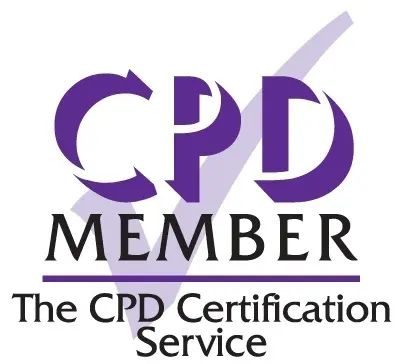Introduction
Foodborne illnesses remain a persistent, albeit often underestimated, challenge in the United Kingdom. The Food Standards Agency (FSA) estimates that millions of cases of food poisoning occur in the UK each year, caused by pathogens such as Campylobacter, Salmonella, and E. coli. These alarming figures highlight how critical food safety measures are in protecting the public. Yet, food safety goes beyond simply preventing illness. It underpins consumer confidence, ensures compliance with regulations, and maintains the economic viability of the UK’s vibrant food industry.
Whether you run a catering business, work in a restaurant kitchen, or cook for your family at home, understanding and applying sound food safety principles is vital. Small, consistent actions—such as ensuring that refrigerated foods are kept at the correct temperature or that everyone washes their hands thoroughly before handling ingredients—make a tangible difference. For those looking to deepen their expertise, FoodComplianceHQ’s Learning Management System offers a structured, accessible way to enhance knowledge and maintain compliance. Their Food Hygiene Level 2 Certificate course, for instance, provides a practical route to mastering essential standards and regulations. As you read on, consider how you monitor food safety within your own environment. Do you keep temperature logs for chilled storage? Have you established a regular cleaning schedule for your kitchen’s surfaces and equipment? Reflecting on your current approach is the first step towards ensuring better standards for all.
What is Food Safety?
Food safety refers to the range of practices, regulations, and conditions necessary to ensure that food remains safe to consume at every stage of its journey—from the farm, through production and distribution, and finally to the plate. The aim is to prevent contamination and reduce the risk of transmitting harmful bacteria, viruses, or allergens. The importance of food safety cannot be overstated. Ensuring that the food we eat is safe protects public health, contributes to consumer confidence, and supports the reputation of UK businesses both domestically and internationally. From a legal perspective, strict adherence to food safety standards helps prevent fines, enforced closures, and damage to brand reputation. One incident that brought these issues into sharp focus in the UK was the 2019 Listeria outbreak linked to pre-packed sandwiches supplied to several hospitals. This led to serious illness and tragic fatalities, serving as a potent reminder of the need for vigilant food safety practices. As you review your own methods—checking use-by dates, maintaining separate chopping boards for raw meat and vegetables—remember that even the smallest improvements can help safeguard people’s health and trust in the food you provide.
Key Principles of Food Safety
Several core principles underpin effective food safety management. Good hygiene practices form the foundation. This includes thoroughly cleaning and sanitising surfaces, washing hands frequently and correctly, and ensuring that all equipment is maintained in a hygienic condition. Consider your own setting: do you have a rota for regular cleaning tasks, and is it strictly followed? Preventing cross-contamination is another fundamental principle. Separating raw and cooked foods, storing ingredients correctly, and using designated utensils for different tasks all help to stop harmful bacteria spreading. Think about your storage procedures—are raw meats always kept on the lowest shelves so that juices cannot drip onto other foods? Traceability is also essential. Keeping accurate records of where ingredients come from and when they were delivered helps to quickly identify the source of any contamination should an issue arise. Regular audits, detailed logs, and a clear paper trail demonstrate that you are exercising due diligence and adhering to UK regulations. Finally, the principles of safe transport and delivery must be observed. Monitoring transport conditions—such as ensuring delivery vans are refrigerated and clean—prevents spoilage and contamination. Reflect on your current deliveries: are supplies checked upon arrival for damage or temperature breaches? By embedding these principles into daily routines, you establish a culture that prioritises safety and public well-being.
Section 3: Legal Framework Governing Food Safety
The UK’s food safety landscape is supported by a robust legal framework designed to protect consumers and maintain fairness across the industry. The Food Safety Act 1990 sets out overarching responsibilities, making it clear that food must not be harmful to health. Meanwhile, the Food Safety and Hygiene (England) Regulations 2013, alongside equivalent regulations in Scotland, Wales, and Northern Ireland, provide more specific guidance on hygiene standards and operational requirements. Allergen regulations introduced under the EU Food Information for Consumers (FIC) continue to apply in the UK, ensuring that anyone with a food allergy or intolerance has access to accurate information. Enforcement bodies, including the FSA, Food Standards Scotland (FSS), and local Environmental Health teams, conduct inspections, investigate complaints, and ensure that businesses uphold legal standards. Achieving and maintaining compliance can be supported by proper training. FoodComplianceHQ’s Food Hygiene Level 2 Certificate, for example, offers clear guidance on legal obligations and best practices, giving food handlers the confidence and knowledge they need to work safely. Consider how well your team understands the relevant laws. Are they equipped to answer questions about allergen information or to demonstrate how hygiene standards are maintained in your setting?
Benefits of Maintaining High Food Safety Standards
High standards of food safety confer numerous advantages. Most importantly, they help to safeguard public health by reducing the risk of food poisoning and allergic reactions. This not only protects individuals but also supports the broader community and national health services. In addition, businesses that consistently deliver safe, quality products inspire customer loyalty and confidence. Word-of-mouth recommendations, positive reviews, and repeat custom all contribute to a strong, sustainable reputation. From a regulatory perspective, maintaining compliance reduces the risk of expensive fines, legal battles, or enforced closures, giving businesses peace of mind and longevity. Streamlined operations are another notable benefit. Preventing spoilage, waste, and contamination can improve cost efficiency, reduce downtime, and enhance productivity. As you assess your practices, ask yourself: where can processes be improved to ensure food safety is not only maintained but optimised?
Consequences of Poor Food Safety Practices
Conversely, neglecting food safety can result in severe and far-reaching consequences. At its most serious, failing to uphold standards can lead to outbreaks of illness and, in some cases, fatalities. Even milder incidents can cause distress, financial loss, and long-term health issues for those affected. From a business perspective, such failings attract negative publicity and damage reputations. Customers quickly lose faith in establishments associated with food safety breaches, and rebuilding trust can be both time-consuming and costly. Legal ramifications are also significant, as businesses may face hefty fines, legal action, or even criminal charges for serious breaches. Financial losses extend beyond potential legal costs. Wasted produce, staff retraining, recalls, and the expense of implementing corrective measures all take their toll. Regularly reviewing your own procedures—assessing how ingredients are sourced, stored, prepared, and served—helps identify potential weaknesses before they become serious and costly problems.
How FoodComplianceHQ Supports Food Safety Training
FoodComplianceHQ provides comprehensive training solutions to help businesses and individuals strengthen their food safety practices. The Food Hygiene Level 2 Certificate course, for example, is tailored to the current regulatory framework and industry norms within the UK. Participants learn not only the theoretical underpinnings of food safety but also practical methods to prevent contamination and ensure compliance. By staying current with legislative updates and best practices, FoodComplianceHQ empowers learners to apply their knowledge confidently. Consider how structured training could benefit you and your team. Are new staff provided with a thorough induction on hygiene procedures? Do seasoned employees undergo refresher courses to stay updated on regulatory changes? Investing in training is an investment in quality, reliability, and the long-term success of your operation.
Further Reading and Resources
Numerous resources can help deepen your understanding of food safety. Reading articles on handling allergens, exploring best practice case studies, and engaging with compliance guides can enhance your own strategies. Pursuing structured learning through courses like the Food Hygiene Level 2 Certificate ensures that you remain informed and ready to adapt to evolving standards. Taking advantage of these tools helps you build a strong foundation of knowledge that can guide improvements in your day-to-day operations.
Conclusion
Food safety is the cornerstone upon which public health, consumer trust, and the UK’s food industry all depend. By focusing on hygiene, preventing cross-contamination, understanding the legal framework, and committing to continual learning, businesses and individuals alike can help maintain the highest possible standards. Ask yourself: how do you monitor food safety in your setting? Are cleaning routines transparent and regularly recorded? Do your employees know how to handle allergens responsibly? Through ongoing reflection and refinement, you can ensure that food safety remains at the heart of your operations, fostering an environment where customers feel confident and protected. Engage with Us! We encourage you to share your experiences and insights on food safety in the comments below. Your contributions can inspire meaningful discussion and collective learning. Stay connected by following our social media channels and subscribing to our newsletter, so you never miss the latest updates, guidance, and special offers. By working together and staying informed, we can continue raising the bar on food safety across the UK.




